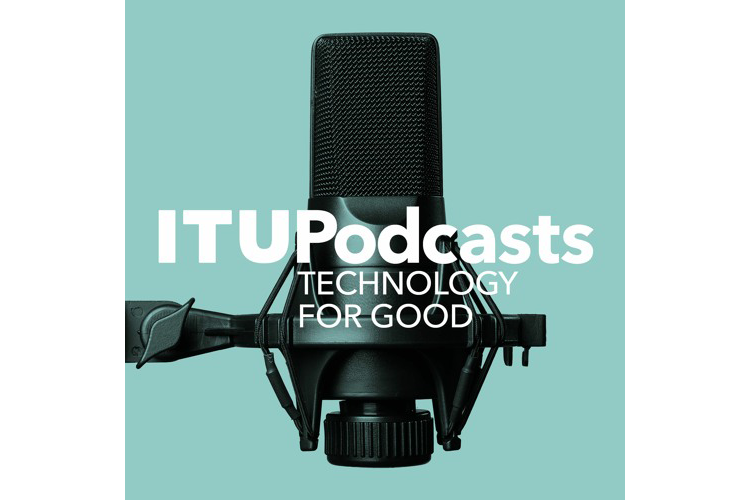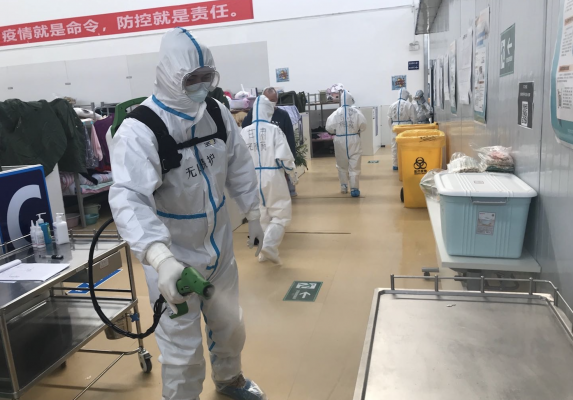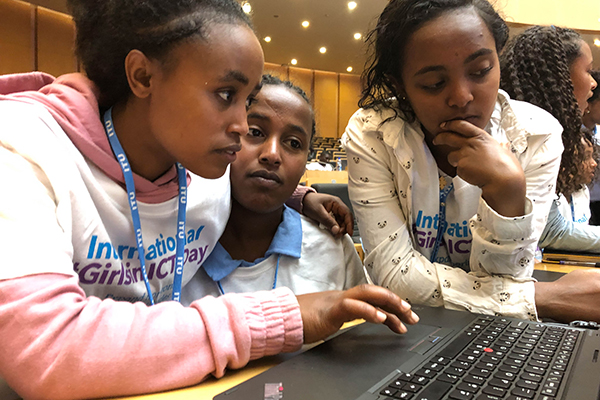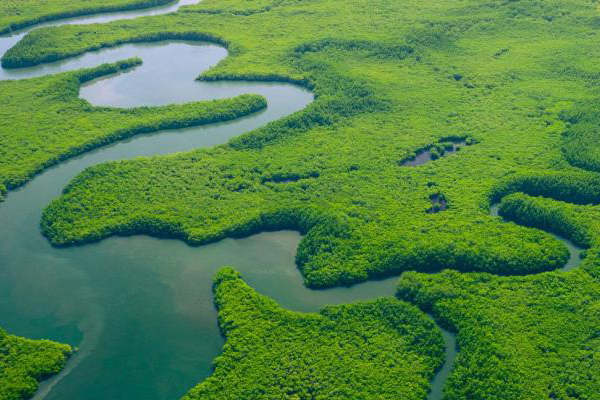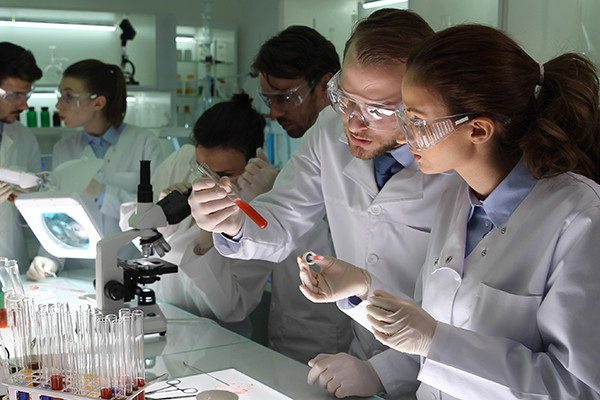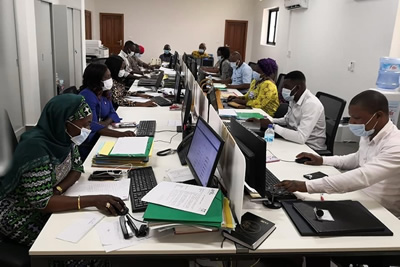COVID-19 has made the world a more challenging place than ever for many of us, but have all the physical precautions we are taking made us forget about keeping connected online in a safe manner?
Science and Technology
The International Atomic Energy Agency is helping dozens of countries use a nuclear-derived technique called rRT-PCR to detect the new coronavirus, by providing the necessary equipment, guidance and training.
Many new technologies debuted during the epidemic. New disinfection technology uses a physical-static method to disinfect, which is safe for both humans and the environment.
Young, creative and bold minds, who are helping redefine their own areas of expertise, are highlighted every year by the US business publication, Forbes. This year, the World Health Organization’s (WHO) yo
With the coronavirus (COVID-19) pandemic dominating news headlines and affecting over a million people around the world, hear how Information and Communication Technologies (ICTs) and Artificial Intelligence are playing a key role in combatting the spread.
The International Girls in ICT Day aims to encourage girls and young women’s interest in the technology sector. Today, the Secretary-General tells girls and young women “the world cannot afford to lose your talent”. ITU encourages to counter the COVID-19 imposed distance by staying connected through online celebrations. Let's turn current constraints into opportunities to demonstrate the power of technology. The Girls in ICT portal remains the central hub for sharing activities with the Girls in ICT community by mapping virtual celebrations.
The United Nations is mobilizing international cooperation to harness the power of science to tackle the coronavirus pandemic, while also working with partners to explore innovative crisis response tools. WHO is gathering the latest scientific findings and knowledge on coronavirus disease (COVID-19) and compiling it in a database, after bringing together 300 scientists, researchers, national public health experts across the world to assess the current level of knowledge about the new virus and identify research priorities and gaps.
Climate technology experts met virtually last week to discuss how governments can green their economies and prepare for the inevitable impacts of climate change.
The global crisis brought on by the coronavirus pandemic has pushed us further into a digital world, and changes in behaviour are likely to have lasting effects. A new analysis from UNCTAD maps the changing digital landscape. It looks at how a digitally enabled world is working for some, but not all equally. According to the analysis, the coronavirus crisis has accelerated the uptake of digital solutions. However, it has also exposed the wide chasm between the connected and the unconnected.
Fifty-nine years ago, on 12 April 1961, Soviet cosmonaut Yuri Gagarin, became the first human to orbit the Earth, opening a new chapter of human endeavour in outer space. From the very beginning of the Space Age, the United Nations has strived to utilize outer space for the betterment of all humankind, including through the UN Office for Outer Space Affairs. During the current unprecedented crisis caused by the COVID-19 pandemic we can take inspiration from the remarkable achievements of science and global cooperation in outer space since the first human spaceflight.
The WhatsApp Coronavirus Information Hub provides simple, actionable guidance for health workers, educators, and other users that rely on WhatsApp to communicate.
As a result of their online meeting on open science, UNESCO calls on governments to reinforce scientific cooperation and integrate open science in their research programmes to prevent and mitigate global crises. Participants from ministries in charge of science from 122 countries, joined the European Commissioner for Innovation, the African Union Commissioner for Human Resources, and the WHO’s Chief Scientist, among others to address open science in the context of COVID-19 response.
Benin this month took its business registration processes 100% digital, setting up an efficient, new online single window that houses all regulatory processes needed to open a business in record time. MonEntreprise.bj allows businesspeople – in Benin or abroad – start a business in two hours and from the comfort and safety of the office or home. The Government of Benin is committed to helping businesses launch efficiently and to lowering barriers of entry into the business world.
WIPO Translate is a market-leading translation software for specialized text. Once trained in a specific subject area, it has been shown to out-perform other paid and free translation tools.
Engineering has always had an essential role in development and human welfare. Ensuring that future generations of engineers and scientists will be able to design solutions for local and global challenges is critical. UNESCO proclaimed the 4 March World Engineering Day for Sustainable Development to raise awareness of the role of engineering in modern life, which is essential to mitigate the impact of climate change and advance sustainable development, especially in Africa and the small island developing states. UNESCO is placing a high priority on activities that promote awareness of engineering as a career, as well as on those that demonstrate the importance of youth studying science, technology, engineering and mathematics (STEM).

